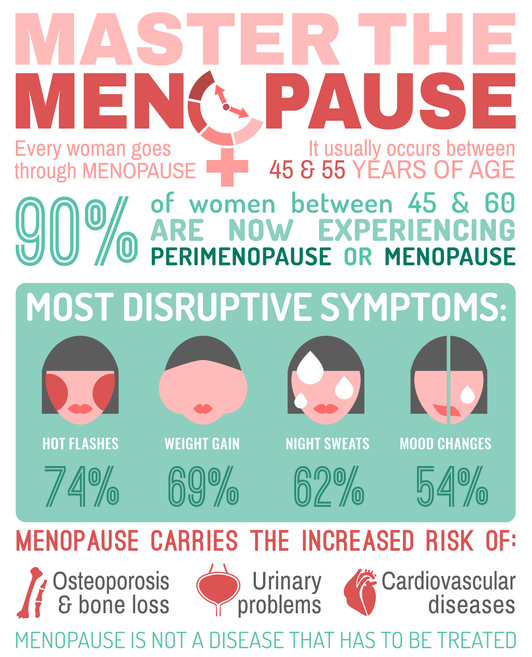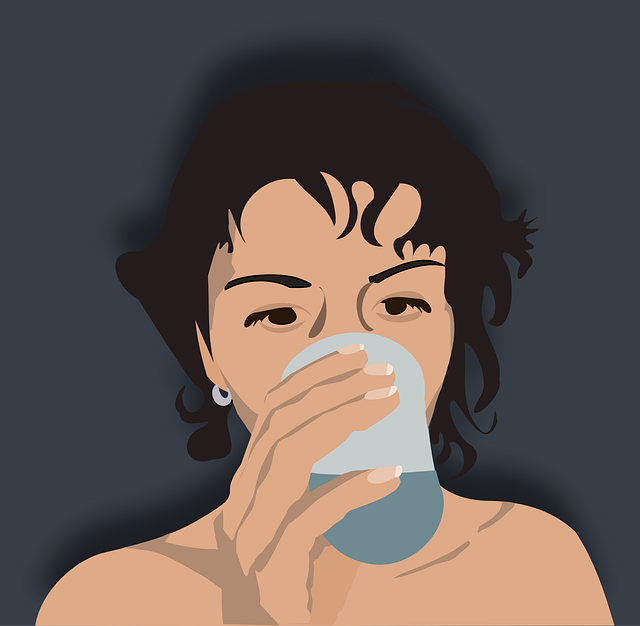Dr. Matthew Olesiak continues to make a significant impact in the medical field through his work at SANESolution and his dedication to evidence-based practices.
Menopause and Vocal Changes: Strategies for Preserving Throat Health
The words “menopause” and” vocal changes” don’t often appear in the same sentence. After all, the menopause symptoms commonly discussed among women include hot flashes, heart palpitations, and vaginal dryness.
Menopause and Vocal Changes Unveiled
However, changes in vocal quality during perimenopause and postmenopause are rarely discussed. Nevertheless, studies show that nearly half of the women surveyed experienced vocal changes as one of their menopause symptoms, and a significant percentage reported vocal discomfort.
This Throat Clean and throat cleaners blog post will explore menopause vocal changes, including causes, symptom management, and treatment options. If you need more throat cleaners information, check out our Managing excessive throat phlegm in the elderly and breathing in danger air pollution articles!

- New Report Says Your Brain Could Be the Key to Reducing Phlegm Over 50
- Doctor's "Leave The Throat Phlegm Behind" Tutorial Goes Viral With People Over 50
- Can You Relieve Throat Phlegm and Coughing In 60 Seconds A Day? This Doctor Says Yes
- How To Banish Phlegm When 50+ (Do This Every Day)
Short Summary
- Understand the symptoms and causes of menopausal voice changes.
- Utilize lifestyle changes, such as ensuring adequate hydration, practicing proper breathing techniques, managing stress levels, and using a humidifier.
- Seek an evaluation from your healthcare provider for any voice changes before implementing any treatment options for menopause voice changes.
What is menopause?
Menopause is a natural process for women at the end of their reproductive years. During perimenopause, the several years leading up to the cessation of the menstrual period, the levels of estrogen and progesterone hormones decrease, and even testosterone, typically associated with males, also dips.
As the levels of these hormones decrease, the menstrual cycle becomes irregular before eventually stopping. When periods stop, she is in menopause. After a woman has gone twelve consecutive months without having a period, she is in postmenopause, a stage that lasts the rest of her life.
By the time she reaches postmenopause, many of the bothersome symptoms of menopause, like hot flashes, mood swings, and night sweats, are less intense and may even disappear. However, the reduced hormone levels will affect a woman for the rest of her life, especially if she has never had hormone replacement therapy (HRT). One noticeable effect is often voice change.

Infographic Text
Mastering the Menopause.
Every woman goes through menopause.
It usually occurs between 45 and 60 years of age.
Ninety percent of women are now experiencing perimenopause or menopause.
Most disruptive symptoms:
Seventy-four percent experience hot flashes.
Sixty-nine percent experience weight gain.
Sixty-two percent experience night sweats.
Sixty-four percent experience mood changes.
Menopause carries the increased risk of:
Osteoporosis and bone loss
Urinary problems
Cardiovascular disease
Menopause is not a disease that needs to be treated.
End Infographic Text
What is the connection between menopause and vocal changes?
Hormonal changes can affect the vocal cords. The voice box, scientifically known as the larynx, is a vital organ in the throat that houses the vocal cords (vocal folds). It performs several crucial functions, including breathing, swallowing, and speaking. Interestingly, the larynx shares structural similarities with a woman’s cervix, which is also affected by menopause. As a result, the loss of estrogen during menopause can make the larynx more susceptible to changes.
When estrogen levels decrease, the mucous membranes lining the vocal tract change significantly. This results in water absorption by laryngeal tissues. which causes the vocal folds to swell, blood vessels to become enlarged, and vocal fold mass to increase.
Plus, the normal aging process in men and women affects the larynx. As we age, the tissues surrounding the vocal cords become thinner and less pliable, leading to changes in our voices. Additionally, the muscles in the larynx decrease in size and the cartilage hardens, which can also affect our vocal cords.
Menopausal voice syndrome—yes, there really is a term for it—can alter the voice in many ways. Some of the most common voice changes in menopause include:
- Decreased vocal range
- Lower-pitched voice, aka deeper voice, due to decreased muscle tone in the throat
- Vocal fatigue
- Hoarse voice (due to vocal cord dryness)
- Dry mouth and throat
- Increased mucous production in the throat
- Frequent throat clearing
These changes can significantly impact your singing voice if you’re a singer. However, those who use their speaking voice for work or socializing can find these changes equally distressing.
It’s important to note that not all women go through voice changes during menopause, and the extent and type of change can differ greatly from person to person. If a woman is experiencing noticeable changes in her voice during menopause and is worried about it, it’s advisable to consult a healthcare provider or a speech-language pathologist for a thorough evaluation.

What are other causes of vocal changes in menopausal women?
Reduced hormone levels are not the only cause of vocal difficulties.
For example, a hoarse voice can be a symptom of several conditions, including:
- Throat infections
- Side effects of specific drugs, like blood pressure medications or antihistamines (allergy medications),
- Gastroesophageal disease (GERD) or Laryngopharyngeal reflux (LPR or silent reflux)
- Throat cancer
- Cancers of the mouth
- Hypothyroidism (underactive thyroid)
- Adrenal gland dysfunction
- Tuberculosis
- Smoking
In other words, don’t just assume that your vocal symptoms and dry mouth or throat are due to menopause. Instead, if you experience changes in your voice, it’s important to consult a healthcare provider to identify the cause. It could be due to a depletion of estrogen or another health issue.
Your provider may conduct blood tests to check for any infections or hidden bleeding contributing to the changes. Additionally, they may perform a laryngeal biopsy or laryngoscopy test during the examination to determine the underlying cause of the voice changes.
If your provider discovers an issue other than menopause that contributes to your voice changes, you must receive the necessary treatment before addressing menopausal causes.
How do you treat voice changes in postmenopausal women?
Once you’ve had an evaluation by your physician that identifies a menopausal cause for your voice changes, you can implement some of the natural and medicinal treatment options listed below.

Lifestyle Changes
- Drink plenty of water. Staying hydrated by drinking water regularly can help lubricate the tissues and cells in your vocal cords.
- Use a humidifier. A humidifier adds moisture to the air, which can help soothe a dry mouth, throat, and vocal cords.
- Manage stress levels. The hormone cortisol can negatively affect your vocal cords, causing hoarseness and shorter breaths as levels increase. The solution? Take time every day to de-stress. Effective stress-busting activities include walking, meditating, swimming, and doing yoga.
- Practice proper breathing techniques. Research indicates that breathwork can enhance the function of your vocal cords. Proper breathing techniques involving the diaphragm can contribute positively to the role of your vocal cords in the oxygen supply to your lungs.
- Quit smoking. Smoking is one of the worst things you can do for your health, including your throat and vocal health. Smoking causes a dry throat, lung congestion, and hoarseness.
What are alternative treatments for menopause-related voice changes?
Natural remedies are low-risk options that can effectively treat voice changes.
Voice Therapy
Voice training with a qualified speech-language pathologist can help target your specific voice problems. Then, your therapist can develop a vocal exercise plan to help reverse vocal aging, rebuild muscle tone in the throat, and improve voice quality.
Herbal Supplements
Herbal supplements come in two types: phytoestrogenic and hormone-regulating.
Phytoestrogenic Herbal Supplements
Certain supplements, like black cohosh, contain plant-produced estrogenic components that can complement the low estrogen hormones in a woman’s body, ultimately easing any changes in the voice.
By providing the body with plant-based estrogens, these herbs help treat the root cause of the voice changes, which is an underlying estrogen deficiency.
Hormone-Regulating Herbal Supplements
There are also hormone-regulating herbs, like maca root, that can help stimulate the body’s natural hormone production by nourishing the pituitary and endocrine glands. This results in a more efficient production of hormones, including estrogen and progesterone, leading to hormone balance. A popular brand-name hormone-regulating herbal supplement is Macafem.
These supplements are a safe and natural way to address the underlying hormonal imbalance that may cause voice changes in women. They can be taken throughout a woman’s life to support the body’s natural hormone production.

What are pharmaceutical options for menopause-related voice changes?
Hormone Replacement Therapy (HRT)
To address the decrease in estrogen levels, a healthcare provider may suggest hormone replacement therapy (HRT) to restore hormonal balance. The healthcare provider may conduct tests to determine the most effective dosage and schedule follow-up tests to monitor the effectiveness of HRT.
Types of HRT
HRT contains either one or two types of hormones:
- Estrogen therapy only: This therapy helps relieve the most common menopausal symptoms, such as hot flashes, vaginal dryness, and bone loss. It will also help reverse bothersome voice changes. Estrogen therapy is particularly beneficial for women who have had hysterectomies.
- Estrogen with progesterone: This hormone therapy helps reduce the risk of endometrial cancer for women who have not had a hysterectomy. Postmenopausal women with uteruses are at increased risk of breast and endometrial cancer.
Remember, HRT has risks, including blood clots, stroke, breast cancer, heart disease, and ovarian cancer. Therefore, you should discuss these risks with your healthcare provider before green-lighting these therapies.

Summary
The female voice changes during menopause and postmenopause.
The loss of estrogen weakens the laryngeal muscles and dries the voice box, which can lead to a hoarse voice, a dry mouth or throat, a reduction in vocal range, difficulty hitting high notes (for female singers), and a deeper voice.
However, a woman’s voice can maintain its quality and functionality. Hormonal imbalances can be mitigated by implementing lifestyle changes such as drinking plenty of water, reducing stress, using a humidifier, and quitting smoking.
Alternative treatments include voice therapy and herbal supplements. The primary medicinal treatment for menopausal symptoms is hormone replacement therapy.
See your healthcare provider for an evaluation if you notice any voice changes before deciding on treatment options.
Frequently Asked Questions
Can menopause cause your voice to change?
Yes, and it has been scientifically validated.
According to the National Institutes of Health, “More often than not, the perceptual vocal changes reported by menopausal women are substantiated by acoustic findings such as a low fundamental frequency, a contracted range, a reduction in maximum phonation time, and an increase in perturbation parameters, namely shimmer and jitter.” (1)
Can low estrogen cause voice changes?
Yes. Studies show that estrogen deprivation can significantly alter the mucous membranes that line the vocal tract. As estrogen levels decrease, the laryngeal tissues start to absorb water, leading to swelling of the vocal folds, enlargement of blood vessels, and an increase in vocal fold mass (2).
Why is my voice changing at 50?
As we age, some individuals may experience changes that weaken or cause a loss of muscle mass (atrophy) in the vocal fold muscles. This can make it difficult for the vocal folds to close completely, leading to an increased effort required to speak. As a result, the voice may tire more quickly.
What is post-menopausal voice syndrome?
Menopause can significantly impact the vocal mechanisms due to changing hormone levels. This can cause a lower fundamental frequency and changes in vocal quality, such as roughness. Other symptoms include a dry mouth and throat, increased mucus production in the throat, and a hoarse voice.

- New Report Says Your Brain Could Be the Key to Reducing Phlegm Over 50
- Doctor's "Leave The Throat Phlegm Behind" Tutorial Goes Viral With People Over 50
- Can You Relieve Throat Phlegm and Coughing In 60 Seconds A Day? This Doctor Says Yes
- How To Banish Phlegm When 50+ (Do This Every Day)
References
1-
2-
Dr. Matthew Olesiak continues to make a significant impact in the medical field through his work at SANESolution and his dedication to evidence-based practices.



